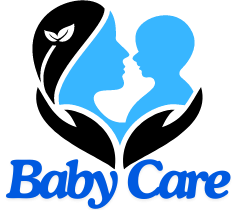Welcoming a newborn into your life is a journey filled with joy, challenges, and endless questions.
Among the most heartwarming yet perplexing is, “How do I know my newborn is happy?” The answer lies in understanding the subtle cues and behaviors unique to infants.
Your newborn’s happiness can be discerned through a combination of contented feeding, regular sleep patterns, responsive interaction, and the appearance of baby smiles and coos.

In this blog post, we’ll delve into these indicators, offering new parents insights into the delightful world of their baby’s emotional well-being.
How do I know my newborn is happy?
To know if your newborn is happy, look for signs like frequent smiling, relaxed body language, consistent feeding and sleeping patterns, and responsive, engaging interactions with you. These are positive indicators of a content and happy baby.
What Are Some Signs of a Happy Newborn?
Facial Expressions
One of the most telling ways to know if your newborn is happy is to look at their facial expressions.
When content, newborns often have relaxed faces with the corners of the mouth upturned into a slight smile.
You may also notice your baby staring intently at you or their surroundings with bright, wide-open eyes – a sign of engagement and interest.
Body Language
A happy newborn’s body will appear relaxed, with arms and legs resting comfortably rather than tense or tucked tightly to their body.
Keep an eye out for gentle stretches, wriggles, and waving arm motions which suggest your little one is comfortable.
Cooing Noises
Happy newborns are often very vocal, making sweet gurgling sounds, sucking noises, sighs, and coos to express their contentment.
These early baby “conversations” are your infant’s way of telling you they like what is happening. Pay attention to these cute noises for signs your newborn is happy.
Feeding Cues
If your newborn turns toward your touch, roots and bobs their head looking to feed, or brings hands to the mouth showing signs of hunger, these feeding cues suggest a happy and healthy baby. Use these signals that the baby is ready to nurse or take a bottle as reassurance.
What If My Newborn Cries – Does It Mean They Are Unhappy?
Newborn babies cry for many reasons, and it does not necessarily mean they are unhappy.
Crying is their primary form of communication and is to be expected. Common reasons for crying include hunger, needing a diaper change, wanting to be held more, or feeling tired/overstimulated.
Try to determine if there is a specific reason and console your baby by meeting their needs.
Sometimes, healthy newborns go through periods of crying more frequently or intensely without an apparent cause.
This normal phase, known as colic or “period of purple crying,” peaks at 6 weeks and then tapers off. During these growth spurts, continue providing comfort until it passes.
If crying exceeds 3 hours a day for over a week or causes concern, consult your pediatrician.
How Much Should My Newborn Sleep?
Newborns need to sleep a lot – usually 16-18 hours per day! They have short wake periods of 1-2 hours before needing to nap again.
This sleep promotes healthy development. Expect your newborn’s sleep cycles to be irregular, with frequent night wakings – this is developmentally normal.
Aim to put your sleeping baby down drowsy but awake, allowing them to learn to self-soothe to sleep.
Place your newborn on their back for naps and nighttime. If you are concerned your baby is sleeping too little or too much, discuss expected sleep patterns at your next pediatric appointment.
Typical Newborn Sleep By Age
| Newborn Age | Expected Total Sleep (Including Naps) |
|---|---|
| 0-2 months | 14 to 17 hours per day |
| 2-4 months | 12 to 15 hours per day |
| 4-12 months | 11 to 14 hours per day |
What Should I Expect With Feeding a Newborn?
In the early months, newborn feeding mainly involves breastfeeding or formula. Expect to feed a newborn 8-12 times in 24 hours during the first weeks.
Watch for early hunger signals like rooting, sucking motions, and hands to mouth. Feed on demand whenever these cues arise, allowing your baby to eat their fill.
Breastfed babies will nurse frequently, sometimes seeming to snack. Feeding times vary but may last 10-40 minutes per breast.
Offer the second breast even if they fall asleep – the hindmilk has more fat to help them feel full longer. Formula-fed newborns may gulp more ounces less often, needing fewer daily feeds.
Newborns should have at least 6 wet diapers and 3 bowel movements per day. These outputs indicate adequate feeding.
Track diapers and infant weight gain until you establish a pattern. If concerned about eating, output, or weight gain, seek medical guidance.
What Activities Can I Do With My Newborn?
While cuddling skin-to-skin and feeding are priorities, you can also interact with your newborn baby in fun ways that encourage development:
Reading
Read out loud to your infant, pointing out bright pictures in black and white board books. Though they cannot understand yet, reading promotes bonding.
Tummy Time
Place your baby on their tummy on the floor to build neck and shoulder strength. Start just a few minutes, increasing gradually as the baby shows readiness to avoid frustration.
Music
Let your baby hear soothing lullabies, rhymes, and classical music to engage their budding language skills. Observe their reactions to tempos, tones, and vibrations.
Infant Massage
Gently rub your baby’s legs, arms, back, and tummy. This nurturing touch soothes babies and aids their development.
Mirror Play
Let curious infants observe themselves in a baby mirror. Seeing their reflection helps them begin to understand themselves.
Mix in these age-appropriate activities between naps and feedings for a happy baby. Keep sessions brief, watch for overstimulation, and follow your newborn’s lead. Adjust activities based on their reactions.
How Can I Help My Baby Feel Secure?
Your newborn baby finds excellent comfort and security in your presence and touch. Keeping babies close in a sling or baby carrier and wearing their sleep clothing with your scent helps them feel safe. Respond sensitively to crying and create soothing bedtime routines.
Reducing external stimuli also prevents overstimulation, so the baby feels peaceful. Strategically use sound machines, swaddles, and pacifiers and adjust lighting, volumes, and activities to desired levels based on your infant’s reactions.
As you get to know your newborn, you will discover what makes them most happy and secure.
When Should I Call the Doctor About My Newborn?
You know your baby best. If anything about their health, behavior, or development concerns you, contact your pediatrician right away.
Report any unusual symptoms like a fever over 100.4F, bluish skin, crossed eyes, breathing issues, poor eating, significantly decreased activity level, or other warning signs.
Trust your instincts – you cannot overreact. An urgent care visit brings peace of mind if worried. It is better to have new parents’ fears calmed than to overlook an undetected issue in a vulnerable baby.
Enable open dialog with your child’s doctor where no question you ask is silly. Voice every concern – that is what pediatricians are for!
Conclusion
While caring for a newborn can feel intimidating, understanding a baby’s signs of happiness along with typical development, feeding, sleep, and care needs goes a long way.
Pay attention to facial expressions, coos, healthy outputs, and behaviors showing contentment.
Respond sensitively to crying, make your baby feel secure, and call the doctor with any concerns. With attentive parenting, your bond will continue growing stronger!
Here are some common frequently asked questions about knowing if a newborn baby is happy:
What are the most apparent signs my newborn is happy?
Clear signs of a happy newborn include a relaxed face, bright eyes, cooing/gurgling sounds, gentle arm/leg motions, turning toward your touch, and rooting for feeding.
How much should a newborn sleep?
Expect your newborn to sleep a total of 14-17 hours a day, including both nighttime sleep and naps. Newborns need to eat every 2-3 hours, so sleep cycles are irregular at first.
What is an appropriate amount of crying?
It’s normal for newborns to cry for up to 2-3 hours total over a day. Crying peaks around 6 weeks during the “period of purple crying” and then becomes less frequent. If crying exceeds 3 hours daily or causes concern, see your pediatrician.
How often does my newborn need to eat?
Expect to feed a newborn about 8-12 times per 24 hours. Breastfed babies may snack more frequently. Watch for early hunger signals like sucking motions, rooting, and hands to mouth, then feed on demand whenever these arise.
What activities can I do with my newborn?
Great newborn activities include reading, tummy time, playing soft music, infant massage, and mirror play. Keep sessions brief and look for signs of overstimulation. Adjust activities based on your baby’s reactions.
When should I call my pediatrician about concerns?
Contact your pediatrician anytime your parental instincts give you worries about your baby’s health, development, behavior, or well-being. It’s always better to have concerns checked than to overlook something. Trust your judgment.

